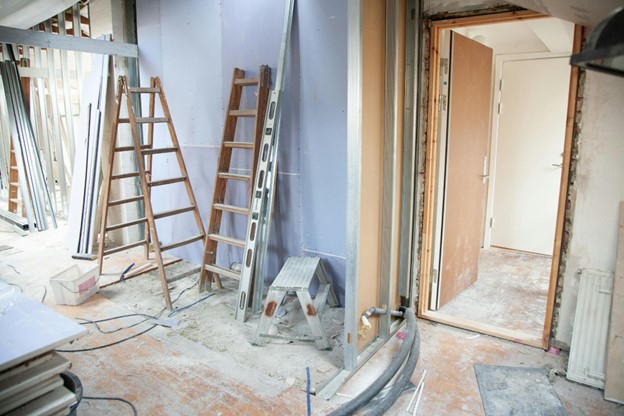Embarking on a home renovation can feel like stepping into a whirlwind of decisions, expenses, and unknowns. Whether you’re adding an extension or simply updating your kitchen, the path to a refreshed space is rarely straightforward. While the end result can absolutely be worth it, the process requires patience, planning, and a willingness to adapt when surprises pop up—as they inevitably will. Understanding the major components involved in a renovation ahead of time can help you stay grounded and better enjoy the journey to a new and improved home.
Renovation Possibilities Beyond the Obvious
Most people associate home renovations with shiny new kitchens and Pinterest-worthy bathrooms, but there’s a much wider range of projects to consider. Basement renovations are a popular choice for families looking to create more usable living space, and home extensions offer room to grow when moving isn’t feasible. Converting a spare room or corner into a home office has also become increasingly important, especially for remote workers. These types of renovations don’t just change how a space looks—they change how you live in it. And each type brings different challenges: kitchens and bathrooms often involve plumbing upgrades, while extensions might require foundation work, structural assessments, and roofing.
Get a Home Warranty for an Added Extra Layer of Security
Once the dust settles and the final walkthrough is done, you might want to think about a home warranty. These plans cover repairs to home systems and appliances, which can bring peace of mind in case a newly installed item breaks down sooner than expected. This is a good option to consider, especially if you can find a policy that includes coverage for removal of defective equipment and failures caused by improper installation or poor workmanship. Not everything is included in traditional homeowner’s insurance, so having that additional protection can offer just the safety net you need.
Timelines Aren’t Fictional, But They’re Flexible
Setting a schedule is essential, but you’ll need to view your timeline as a rough map, not a guarantee. Most renovations take longer than expected due to hidden structural issues, backordered materials, or delays in permitting. You should work with your contractor to establish clear phases—demolition, installation, inspection, etc.—and build in buffers for the unexpected. If your family will be living in the house during the renovation, you’ll want to plan ahead for which areas will be inaccessible and for how long. Having realistic expectations about timing helps reduce frustration and allows you to focus on progress instead of setbacks.
Budgets and the Price of Peace of Mind
One of the trickiest parts of any renovation is cost. Beyond materials and labor, you’ll also need to account for design fees, permits, disposal services, and contingency funds for when things go wrong. A safe rule is to add 15-20% on top of your initial estimate to cover unexpected expenses. Tools like budgeting spreadsheets or apps can help track your expenses in real-time. It’s also a good idea to get itemized quotes from multiple contractors and check whether any part of the renovation could make you eligible for tax credits—especially for energy-efficient upgrades.
Find Contractors Who Do More Than Talk a Good Game
Hiring the right contractor isn’t just about choosing someone with a nice website. Word-of-mouth recommendations from people you trust are often the most reliable. Once you have a few names, check their licenses, verify insurance, and ask for examples of past work. A reputable contractor should be comfortable answering detailed questions about their process and providing a clear contract that outlines responsibilities, timelines, and payment schedules. Don’t be afraid to walk away if something feels off—trust is the foundation of a successful renovation.
Speak Your Vision Without Micromanaging
Even the best contractors can’t read your mind, so clear communication is critical. Use photos, sketches, or online mood boards to illustrate your vision. Be specific about your must-haves versus your nice-to-haves, and don’t assume that silence means understanding—walk through the plans together regularly. That said, try not to hover during every hour of the build. Give your contractor room to do their job while checking in at agreed-upon intervals to review progress and tackle any unexpected questions.
Don’t Skip the Permits
Permits can feel like a bureaucratic headache, but skipping them can cost you dearly later on. Any structural change, electrical update, or plumbing reroute typically requires a permit, and failing to secure one can delay resale or void your homeowner’s insurance. Most contractors will handle permits on your behalf, but you should still verify this in writing and ask to see documentation. Even projects that seem minor, like adding a deck or replacing windows, may require approval depending on your local ordinances.
Home renovations can be a rollercoaster of choices and changes, but when done right, they breathe new life into your space and how you experience it every day. From planning and budgeting to hiring and protecting your family, each stage brings its own challenges—but also its own rewards. The goal isn’t perfection but transformation, guided by smart decisions and a clear sense of what matters most to you. When the final nail is hammered in and the last piece of furniture is set, you’ll know exactly why it was worth every step.
Discover more insightful articles and explore opportunities to contribute by visiting The Fergusson Group today!

